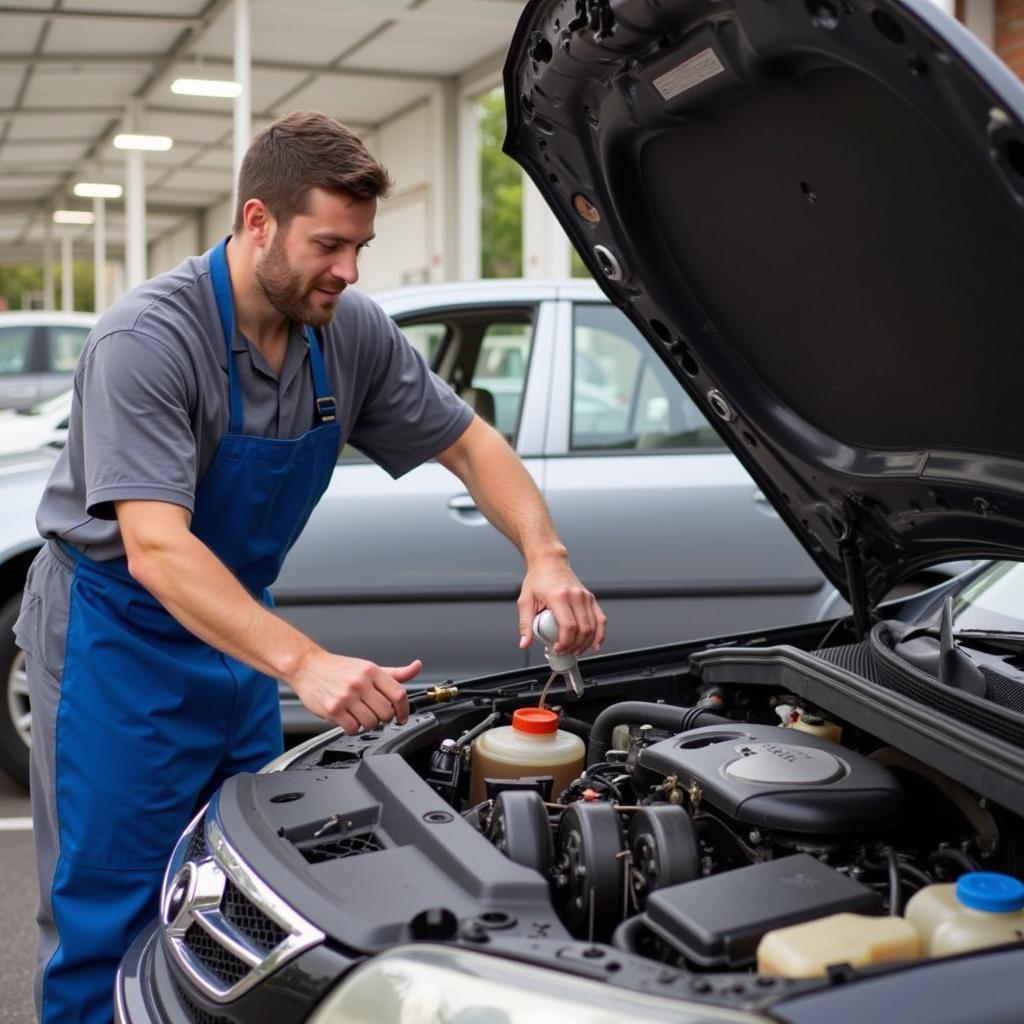Lauren Fix, often dubbed the “Car Coach,” has become a trusted voice in the automotive industry. As electric vehicles (EVs) gain momentum, Fix has turned her expertise to these technologically advanced vehicles. This guide will delve into the world of EV maintenance and repair, offering valuable insights from Fix and addressing common concerns for both EV owners and mechanics.
Understanding the Nuances of Electric Car Maintenance
Electric cars, while mechanically simpler than their gas-powered counterparts, require a different approach to maintenance and repair. The absence of a traditional combustion engine eliminates the need for oil changes, spark plug replacements, and exhaust system repairs. However, EVs come with their own set of components that require specialized care.
Battery Health: The Heart of Your EV
The battery is the lifeblood of an electric car. Maintaining its health directly impacts performance, range, and the overall lifespan of the vehicle.
Lauren Fix emphasizes, “Think of your EV battery like a smartphone battery. Avoid extreme temperatures, both hot and cold, as they can degrade the battery over time. And just like your phone, don’t constantly charge it to 100% or let it drain to 0%.”
Beyond the Battery: Other Essential Maintenance Checks
While battery care is paramount, it’s crucial not to overlook other aspects of EV maintenance.
- Tire Rotation and Alignment: EVs, due to their instant torque and often heavier weight, can wear tires faster.
- Brake System: Regenerative braking systems, while extending brake pad life, require specialized checks.
- Cooling System: EVs use liquid cooling systems for their batteries and power electronics. Regular coolant flushes are essential.
- Software Updates: Manufacturers frequently release software updates that optimize performance and address potential issues.
Tackling Electric Car Repairs: What You Need to Know
Repairing an EV differs significantly from working on a traditional vehicle. High-voltage systems, specialized components, and evolving technology require specialized training and equipment.
The Importance of Specialized Training
“Mechanics need to acquire the right knowledge and skills before tackling EV repairs,” warns Fix. “High-voltage systems pose significant risks, and improper handling can lead to serious injury or even death.”
Finding a Qualified EV Mechanic
Not all mechanics are equipped to handle EV repairs. When searching for a qualified technician, consider the following:
- Certifications: Look for ASE certified technicians with specialized EV training.
- Experience: Choose a shop with a proven track record in EV repair.
- Equipment: Ensure the shop has the necessary diagnostic tools and safety equipment for EVs.
Addressing Common Concerns About Electric Car Repair
1. Are EV repairs more expensive?
This is a common misconception. While some EV components can be costly, the overall maintenance costs tend to be lower due to fewer moving parts and the absence of traditional engine maintenance.
2. Is it difficult to find parts for EV repairs?
As EVs become more mainstream, parts availability is continuously improving. However, it’s advisable to check with dealerships or authorized repair shops for specific parts.
3. What are the safety precautions when working on EVs?
High-voltage systems require extreme caution. Always disconnect the battery before working on any electrical components and use insulated tools and gloves.
Lauren Fix: Your Guide to Navigating the EV Revolution
As the automotive landscape shifts towards electrification, staying informed is key. Lauren Fix, with her insightful commentary and expertise, serves as a valuable resource for all things EV. By understanding the nuances of EV maintenance and repair, both owners and mechanics can embrace this new era of automotive technology.
For expert advice or to connect with a qualified EV mechanic, contact AutoTipPro at +1 (641) 206-8880 or visit our office located at 500 N St Mary’s St, San Antonio, TX 78205, United States.





Leave a Reply